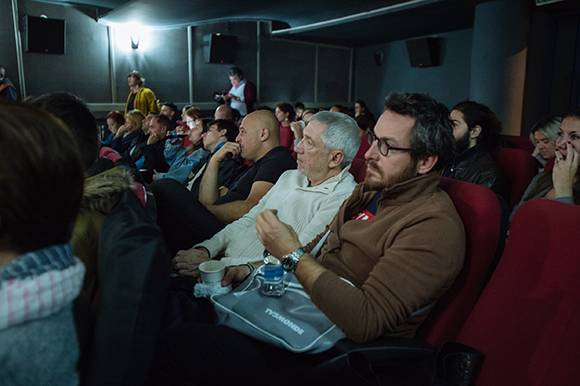Members of the film community discussed the draft with representatives of the CNC in a debate within the 9th Les Films de Cannes à Bucarest, which takes place in Bucharest from 19 to 28 October 2018 and in seven other Romanian towns until 11 November 2018.
Producers and filmmakers agree with some of the new proposals of the draft, but are cautious about others. For example they think that collecting all the taxes from advertising for the Film Fund would make the film industry more rigid.
“This would create complete dependence on the CNC”, says Cristian Mungiu, the founder of Les Films de Cannes à Bucarest and the moderator of the debate. In 2017 the taxes from advertising collected by the Film Fund were 5.4 m EUR / 25 m RON, representing 1.5% of the TV ad revenues.
Filmmakers also think that collecting 1% from the monthly revenues of internet providers (a new proposal in the draft) might double the existing Film Fund budget from 15 m EUR to 30 m EUR, but the lobby of the internet companies is too strong to be overturned.
“According to the new draft, the Film Fund could increase to 45 m EUR”, says Alex Trăilă, policy advisor on EU affairs and foreign relations at the CNC and the Romanian representative on the Board of Management of Eurimages. However, Anca Mitran, the Head of the CNC, says that the gambling entities are contributing to the state budget with a percentage from their annual revenues, but the Ministry of Finance is invoking a lack of methodology, which would prevent it from forwarding 2% to the Film Fund, as it should. Anca Mitran also said that the CNC is preparing to summon the Ministry of Finance.
The CNC is relying on the Film Fund as it does not receive any money from the state budget.
Producers believe that hiring evaluators from abroad to judge the film projects would increase the objectivity and professionalism of the grants contest. They also suggest launching a grant for postproduction and support not only for first feature films but also for sophomore features.
The new draft provides a separate category for minority coproductions. Until the most recent grant session, Romania had supported very few minority coproductions.
Oana Radu, who was involved in a previous draft of the film law proposed by the former team of the Ministry of Culture and rejected by the Parliament in 2016, suggested that the CNC should not forget about the archiving process of films from the national cultural heritage, film education, and the support of the refurbishment of cinemas by building a programme for local authorities.
The draft also provides a regional fund for co-distribution and a category of micro-budget films (films with budgets of up to 80,000 EUR), which could be financed by the CNC up to 100%.
The Romanian Film Centre will review all the proposals and is expected to prepare a new draft as quickly as possible.




















